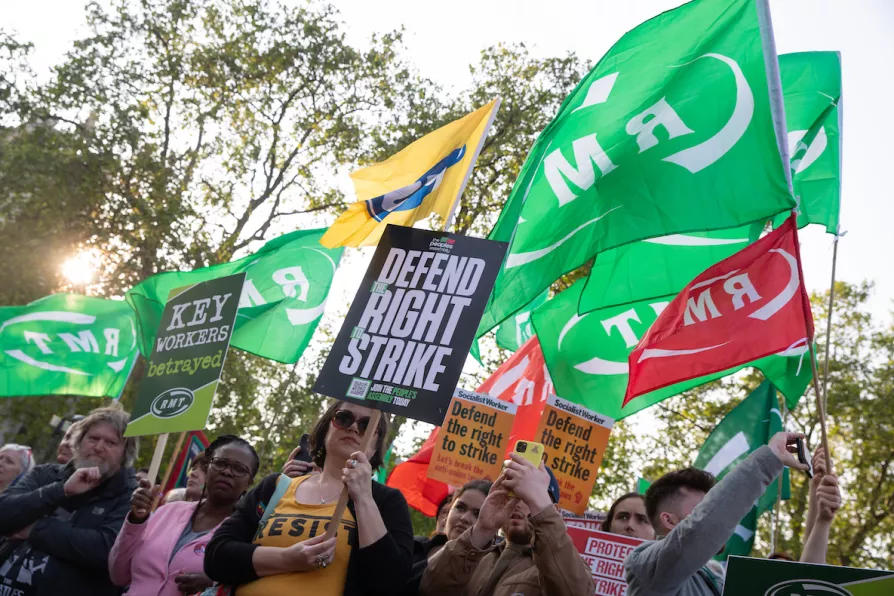
 Protesters during the demonstration in Parliament Square, London, against the Government's controversial legislation on minimum levels of service during strikes, which unions warn could lead to workers being sacked for legally voting to take industrial action. Picture date: Monday May 22, 2023.
Protesters during the demonstration in Parliament Square, London, against the Government's controversial legislation on minimum levels of service during strikes, which unions warn could lead to workers being sacked for legally voting to take industrial action. Picture date: Monday May 22, 2023.
THE United Nations launched an “embarrassing” attack on the Tory government’s latest assault on unions and the right to strike today.
In a rare but damning intervention, the International Labour Organisation (ILO), the UN workers’ rights watchdog, reminded Downing Street that its legislation must comply with international law.
The agency instructed ministers to seek technical assistance from ILO staff and report back on progress in September. It is the first call of its kind to be applied to Britain in nearly three decades.

Our members face serious violence, crumbling workplaces and exposure to dangerous drugs — it is outrageous we still cannot legally use our industrial muscle to fight back and defend ourselves, writes STEVE GILLAN

The Bill addresses some exploitation but leaves trade unions heavily regulated, most workers without collective bargaining coverage, and fails to tackle the balance of power that enables constant mutation of bad practice, write KEITH EWING and LORD JOHN HENDY KC

It is only trade union power at work that will materially improve the lot of working people as a class but without sector-wide collective bargaining and a right to take sympathetic strike action, we are hamstrung in the fight to tilt back the balance of power, argues ADRIAN WEIR











